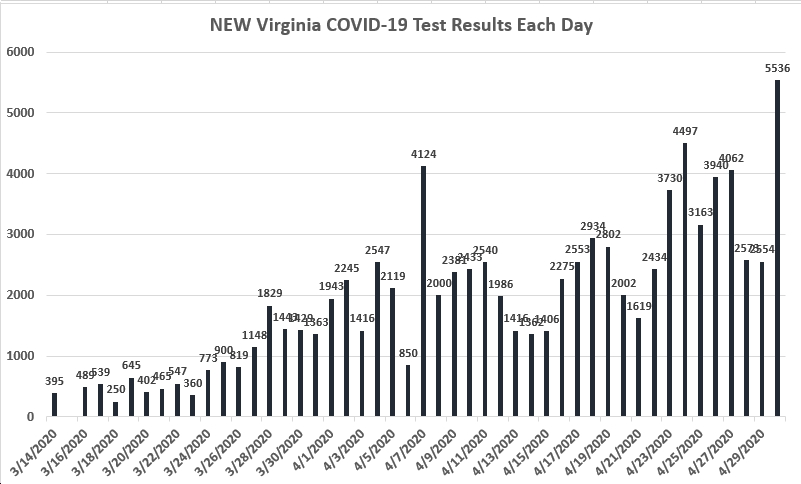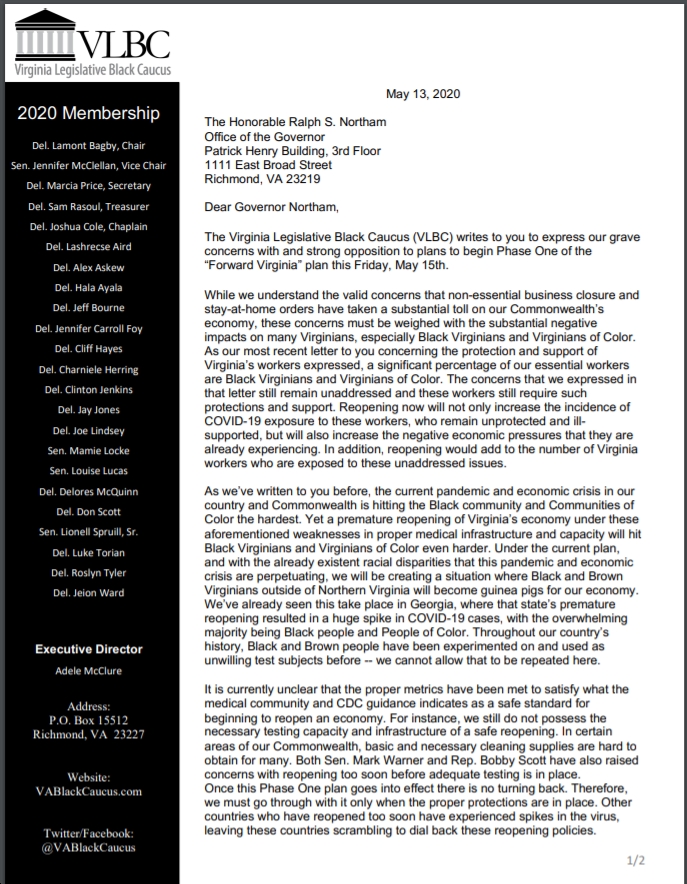Thanks as always to Dr. Mike Silverman, Chair of the Department of Emergency medicine at Virginia Hospital Center, for these helpful updates!
Friday Night Update from the ER in Arlington, VA
I worked last evening. It was remarkable because not only did I not have any patients with COVID, but I also didn’t even have any patients I thought could have COVID. None of my patients required COVID isolation. And although I ordered plenty of COVID tests, none were positive. Our data support my impression that we are over the latest COVID hurdle. The number of patients we’re diagnosing with COVID continues to decline. We have had declines in the number of “symptomatic” patients requiring testing and we’ve seen a pretty substantial drop in our percent positivity rate among this patient group. We’re down to a handful of positive cases a week among symptomatic patients. And we had even less positives among our “asymptomatic” patient population. (As a reminder, these are patients who are being admitted or require a screening COVID test as part of their evaluation.) All in all, there was no meaningful impact to our operations from COVID and our data this week resulted in as low a percent positive rate and number of positive cases as we’ve seen in a long time. In fact, after wearing an N95 since last July when Delta started, I’m considering going back to a regular surgical mask and just having the N95 nearby in case I need it. The number of patients in the hospital with COVID has also declined since last week. However, our non-COVID volume and acuity (how sick patients are) is quite high in the ER and around the hospital. It’s clear that some people haven’t had healthcare in a long time and now it appears we’re seeing complications of untreated illness. We’ve also seen a return of routine viral illnesses that are making people sick enough to appropriately seek emergency care.
There is obviously huge vaccine news this week. The CDC’s Advisory Committee on Immunization Practices (ACIP) voted 14-0 for Pfizer vaccine approval for the 5-11 year old age group. Then the vaccine was officially approved by the CDC Director. And now the 5-11 year old’s have started to get vaccine. This is huge and I know a lot of you are really excited to get your kids vaccinated. This will make schools, teachers, sports, and everything else safer. There’s an estimated 28 million kids in this age group and getting them vaccinated will bring us closer to herd immunity. The CDC estimates that for “every million doses given to children ages 5 to 11 would prevent about 58,000 cases and 226 hospitalizations in that group…Immunizing these children is expected to prevent about 600,000 new cases from November 2021 to March 2022.” It’s fantastic that the vaccine is approved for kids and shipping has actually started, but please be patient. There’s not enough vaccine to immediately vaccinate every kid so your doctor’s office may not have it immediately, your appointment may get cancelled and need to be rescheduled, etc…Keep rechecking. Be patient. Your doctor wants to vaccinate your child quickly, too.
There is a newish Delta variant getting some press this week named AY.4.2, often referred to as Delta plus. It’s actually been around since late summer. Currently, it’s documented in 8 states, including Maryland plus DC. It’s believed to spread faster than Delta though has not been shown to lead to more severe cases. Fortunately, the vaccine remains effective against the new strain. The CDC is reporting that Delta plus has made up <0.1% of sequenced cases in the US the last several weeks and honestly, I’m not hearing much about it in meetings I’m attending. There are other Delta variants as well and we know the virus will continue to mutate.
In a press release today, Pfizer has released phase 2/3 data on their oral antiviral medication ritonavir. In their study, ritonavir was found to “reduce the risk of hospitalization or death by 89% compared to placebo in non-hospitalized patients.” In their study population followed through day 28, no patients who received the antiviral medication died compared to 11 in the placebo group. This was a double-blind study of patients considered high risk for progressing to severe disease. For patients who got ritonavir within 3 days, only 3 of 389 patients required hospitalization, whereas the placebo group had 27 of 385 who required hospitalization. Similarly for patients who received medication within 5 days of symptom onset, only 6 of 607 required hospitalization with zero deaths whereas 41/612 in the placebo group required hospitalization with 10 patients ultimately dying. This interim analysis was clear enough that an independent data monitoring committee recommended halting the study to pursue an Emergency Use Authorization through the FDA. This is another potential game changer coming out way. The press release mentioned that a cohort of the patients in the study were vaccinated and I look forward to seeing more details of the data. (Having an oral medication available to treat COVID should not replace vaccination as NOT getting COVID is still better).
Let’s take a quick look at some of the literature from this week.
There was some good data reported this week in JAMA online looking at real world effectiveness data of the J&J vaccine. Researchers looked at 97,500 electronic health records and found that 0.7% of those who received J&J vaccine ultimately got COVID compared to 2.5% of unvaccinated patients. This is equivalent to a vaccine effectiveness rate of 73.6%. J&J patients also had a lower risk of hospitalization and a lower risk of requiring the ICU. The authors suggest that J&J is effective as a single dose. However, it’s not quite as effective as the mRNA vaccines and boosters are available for J&J recipients.
Both natural immunity (being recovered from COVID) and immunity from the vaccine can help keep you safe. But in a CDC MMWR publication from this past week, researchers reviewed patient data from 187 hospitals across 9 states looking at hospitalized patients with COVID who either had COVID previously (natural immunity) or had been vaccinated. It turns out that non-vaccinated patients who had natural immunity were 5.49 times more likely to require hospitalization when they got COVID a second time than those who were vaccinated and had a breakthrough case. This data suggests that vaccine induced immunity is more protective than immunity from having lab-confirmed COVID previously and that all people should get vaccinated.
Another MMWR report compared mRNA vaccine effectiveness against COVID hospitalization among immunocompetent and immunocompromised patients. Healthy people see about a 90% reduction in COVID hospitalization once they’ve gotten the vaccine compared to the unvaccinated. Immunocompromised patients saw a 70% reduction after the 2 dose vaccine. That is why a booster shot was initially recommended for this patient cohort and why the current recommendation is for a 3-dose series of vaccine and a booster (4th shot) 6 months after the 3rd dose.
In a recent article published in JAMA, patients who had COVID and an ST elevation myocardial infarction (STEMI or a heart attack that is treated with emergency cardiac catheter intervention) had a higher mortality rate than those who didn’t have COVID. For patients who have an out of hospital STEMI (those I see in the ER), mortality was 15.2% in STEMI patients with COVID compared to 11.2% for STEMI patients without COVID. Among patients who had a STEMI while hospitalized, mortality rates were 78.5% for patients with COVID-19 and 46.1% for patients without COVID-19.” Certainly, having COVID put you at a much higher risk of dying.
Published in Nature Genetics this week, researchers appear to have identified a gene that doubles the risk of respiratory failure from COVID and is associated with over a two-fold risk of death. The proposed mechanism this gene “most likely prevents the cells lining airways and the lungs from responding to the virus properly.” Approximately 60% of people with South Asian Ancestry carry the gene compared to approximately 15% of those from European ancestry.
Despite COVID now claiming 5 million lives worldwide and more than 750,000 American lives, I’m changing my sign off again since I’m feeling more optimistic that we are making progress with COVID. While it likely won’t ever disappear completely, we can minimize its impact on how we live.
Science matters. Get vaccinated. Wear a mask. We’re almost there.
Mike

















